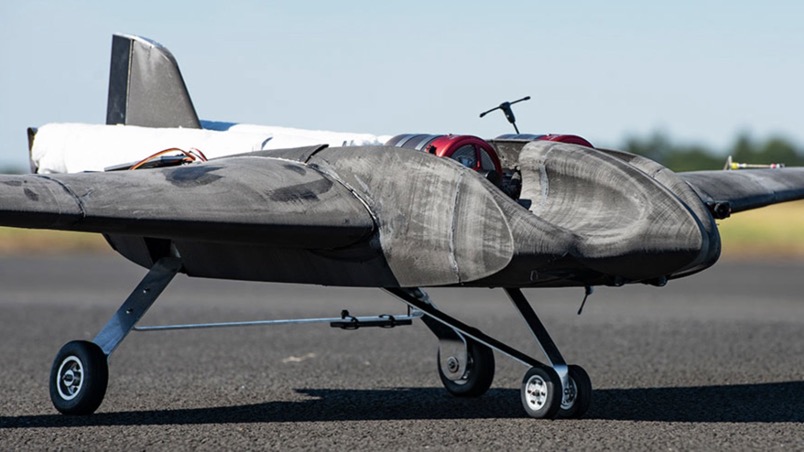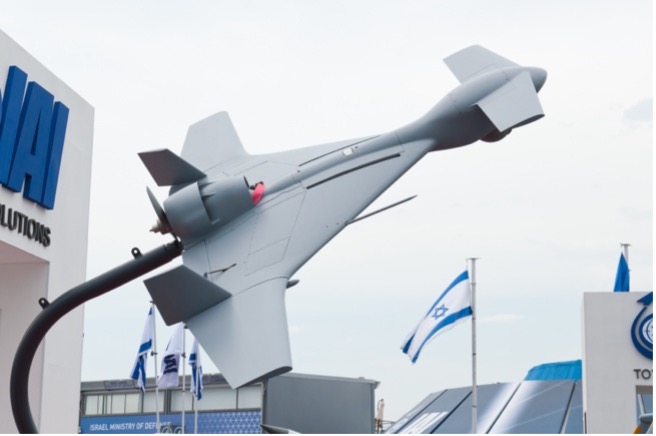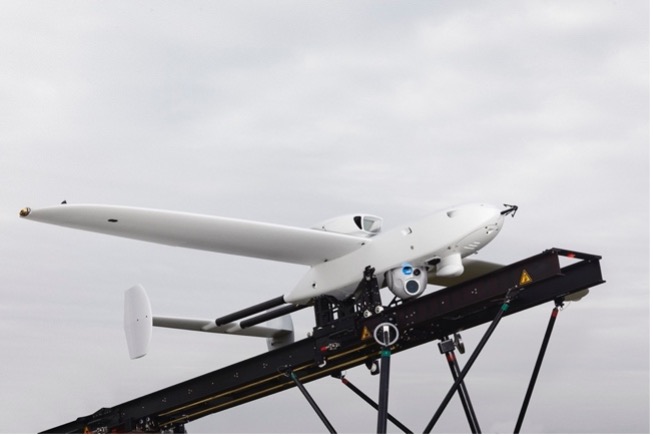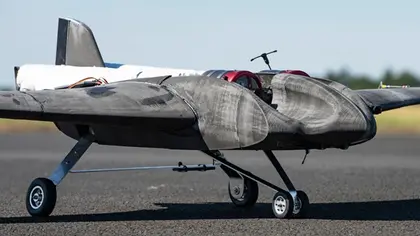In a statement ahead of talks between the UK Prime Minister and President Volodymyr Zelensky on May 15, Downing Street announced it was intending to add to Ukraine’s long-range arsenal with “hundreds” of attack drones with a range of 200 kilometers, almost twice the range of the HIMARS rocket launcher system.
A journalist from the British newspaper The Guardian quoted an unnamed “expert specializing in UK drones” on Twitter who says he had “absolutely no idea” where these drones would come from as “the UK does not have such a capability.”
JOIN US ON TELEGRAM
Follow our coverage of the war on the @Kyivpost_official.
However, there were reports at the end of 2022 and earlier this year that the UK Ministry of Defence (UKMoD) had been developing and testing a range of drones as part of the KINDRED program. KINDRED was a UK government initiative to urgently examine, source or develop new weaponry and technology in support of Ukraine.
One such program examined and tested a number of unmanned aerial vehicles (UAV), as drones are more accurately known, from five manufacturers. The UAV program was managed on an even shorter schedule than normal, with the KINDRED team being allowed just three weeks to demonstrate it to senior UKMoD officials after receiving the Statement of Requirement (SOR). Although details of all the competitors or the systems that were on trial were not revealed, one participant, QinetiQ, declared itself.

Zelensky Meets CIA Director William Burns in Ukraine
In an article on its web-site, which has since been removed, QinetiQ announced that it had been tasked to demonstrate a series of drones and technologies at the MoD’s Boscombe Down testing site.
Among the UAVs reportedly tested was the QinetiQ designed 3D-printed delta-wing “suicide” drone, according to Gabriele Molinelli, an Italy-based journalist. Although only limited details are known about the drone, it is believed to be a “kamikaze” drone designed to carry an explosive payload to a target before detonating.

| QinetiQ 3-D printed dronePhoto: QinetiQ |
QinetiQ was formerly part of the UKMoD’s Defence Evaluation and Research Agency (DERA), that was privatized in 2002 with the purchase of a stake by the US-based private equity Carlyle Group.
Moreover, QinetiQ has also been playing a central role in developing new UAV technologies for the UK Royal Navy, including the jet-powered “Banshee” aerial target drone, which could conceivably be adapted as a “suicide” drone.
Other systems that may have been examined include the Israel Aircraft Industries’ Harop UAV and the Rheinmetall Combat “Game Changer” UAV.
The Harop is said to be small, maneuverable, nearly impossible to detect, and relatively inexpensive. It is believed to carry a 25-kg high explosive charge and is designed to react to the signals from an enemy radar or another target of opportunity before crashing into it and detonating its payload.
The Rheinmetall combat UAV is based on its Luna NG reconnaissance drone which can carry a number of the “Hero-R” loitering kamikaze munition, which carries an explosive charge inside a cylindrical drone with fold-out quadcopter rotors, that can be released singly or in swarms.

Israeli Harop UAV
Photo: Wikicommon

Rheinmetall Game Changer UAV
Photo: Rheinmetall
The one-shot kamikaze drones, the Harop and the unnamed Qinetiq UAV, have a much more basic task and are destroyed once launched. As such they are considerably smaller and cheaper than their more sophisticated “big brothers” such as the Reaper/Predator drones, of the USAF and UK RAF, which each cost over $30 million but have a more sophisticated role. The Rheinmetall drone seems to fill in the gap between the two extremes.
You can also highlight the text and press Ctrl + Enter






